Arabic networks focus on US election coverage with augmented reality
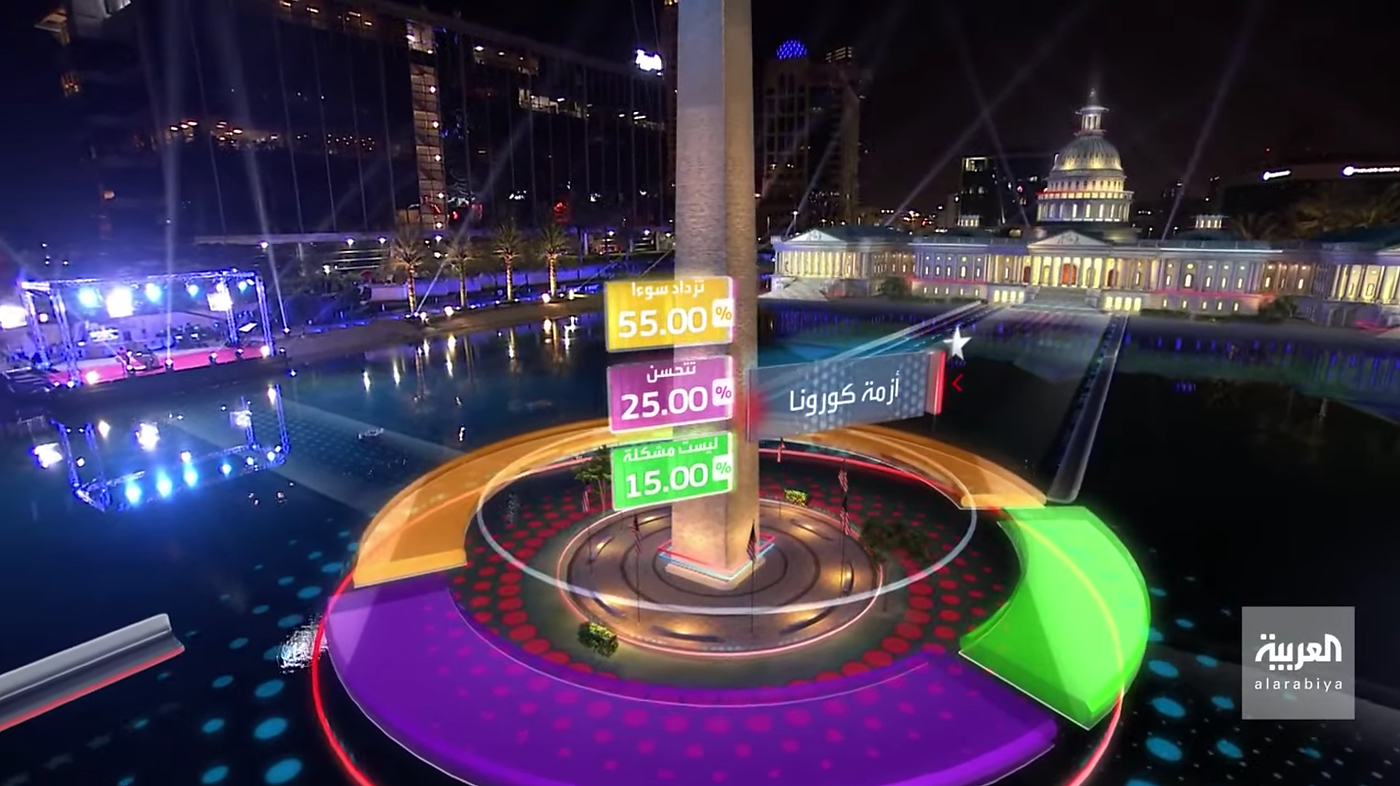
Subscribe to NewscastStudio for the latest news, project case studies and product announcements in broadcast technology, creative design and engineering delivered to your inbox.
Augmented reality and immersive environments were the centerpieces of U.S. election night coverage on many Arabic broadcast networks.
MBC Group’s Al Arabiya (العربية) transformed the lake and sky outside of its Media City building in Dubai into a larger-than-life replica of the National Mall from Washington, D.C.
“The sky is not the limit anymore,” notes Fadi Radi, Al Arabiya’s director of creative. “The idea was to create a studio which has Washington, D.C. buildings including the White House and the Congress on the set.”
The network, of course, is no stranger to augmented reality, having an entire internal team dedicated to creating topical elements. For this year, the augmented reality footprint has doubled from the coverage 2016 United States general election, which also used large-format displays.
Flying above the lake was a Robycam robotic camera from Movicom along with two stYpe cranes equipped with camera tracking.
Vizrt tools including the Viz Engine and Viz Virtual Studio drove the graphics, with data coming from the AP via Viz Pilot.
In Doha, Al Jazeera Media Network’s channels, including Al Jazeera English, Arabic, Mubasher and Balkans, also leveraged Vizrt tools powered by the Astucemedia data platform with real-time results.
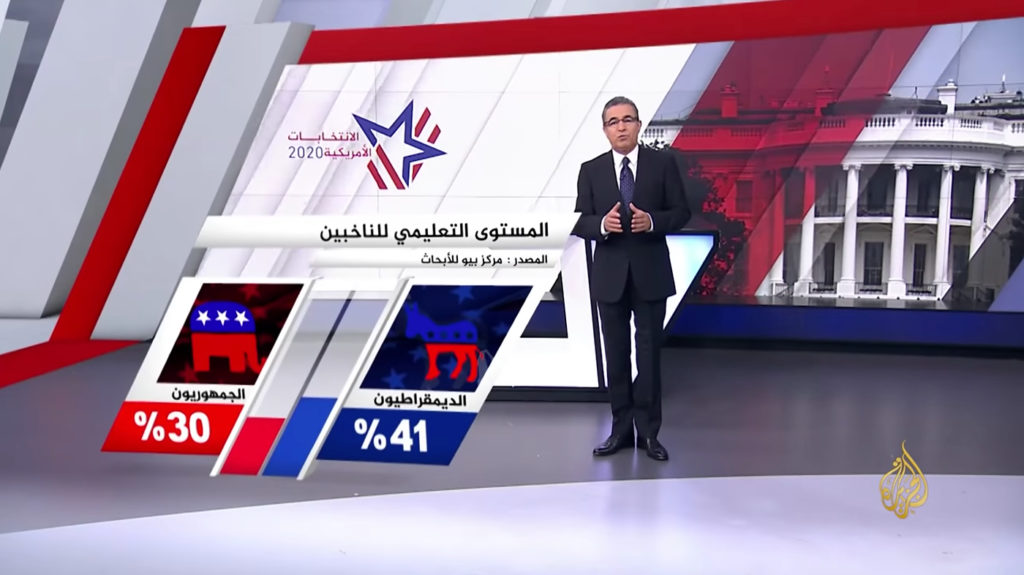

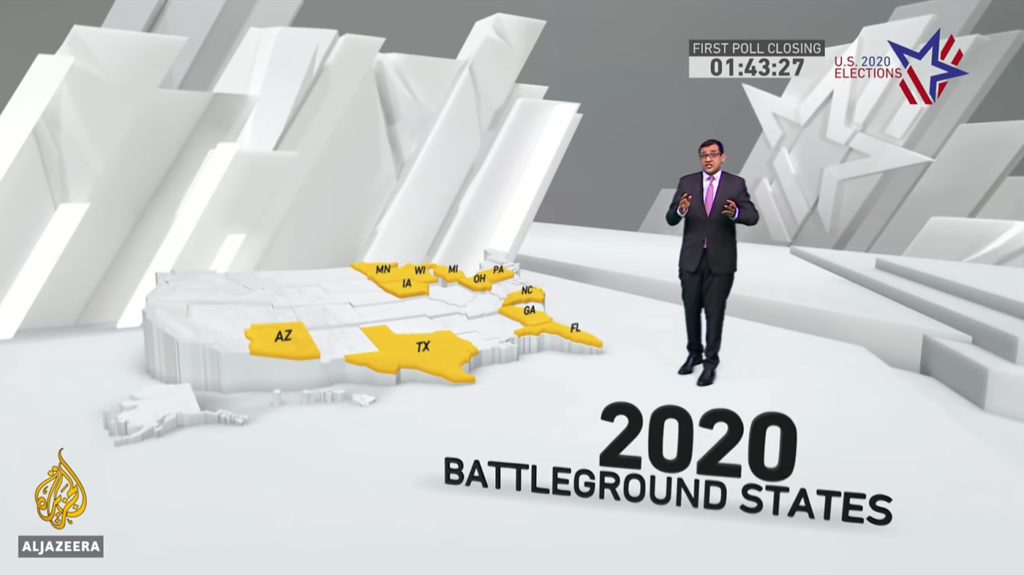

Along with video wall graphics, Al Jazeera used a virtual set across its networks to breakdown data with augmented reality graphics layered on top. Ahead of the election, for example, this was used to explain the idea of battleground states to an international audience, while on election night the immersive environment pivoted to exit polls and election returns.
Sky News Arabia (سكاي نيوز عربية), meanwhile, mixed virtual environments with virtual set extensions from its Abu Dhabi headquarters.
Powered by Zero Density’s Reality platform and rendered in the Unreal Engine, the network’s virtual studio placed the presenter on the lawn of the White House inside of a glass dome.
Inside of this world, a tablet and touchscreen monitor allowed the presenter to break down data which was also layered in front.
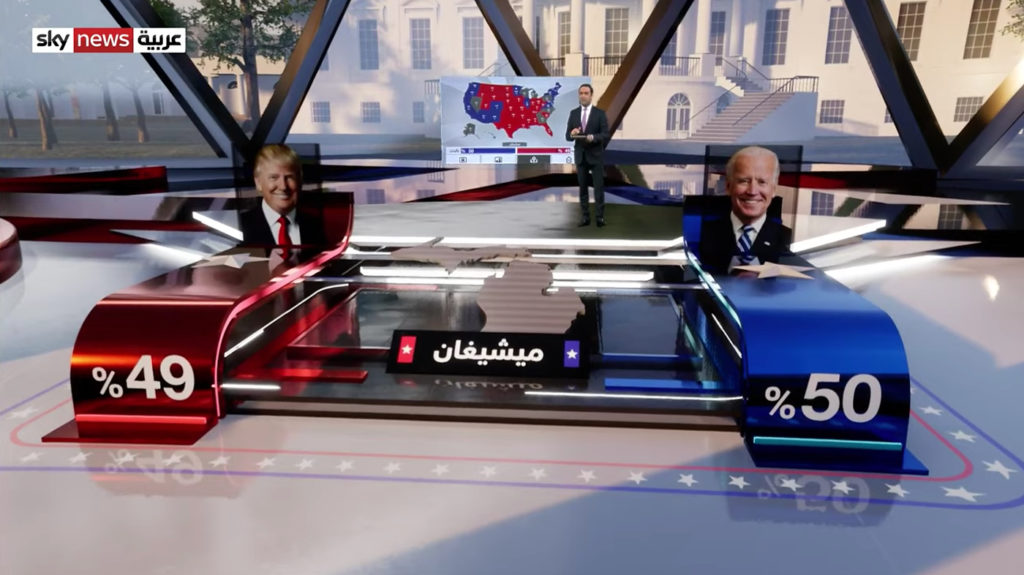

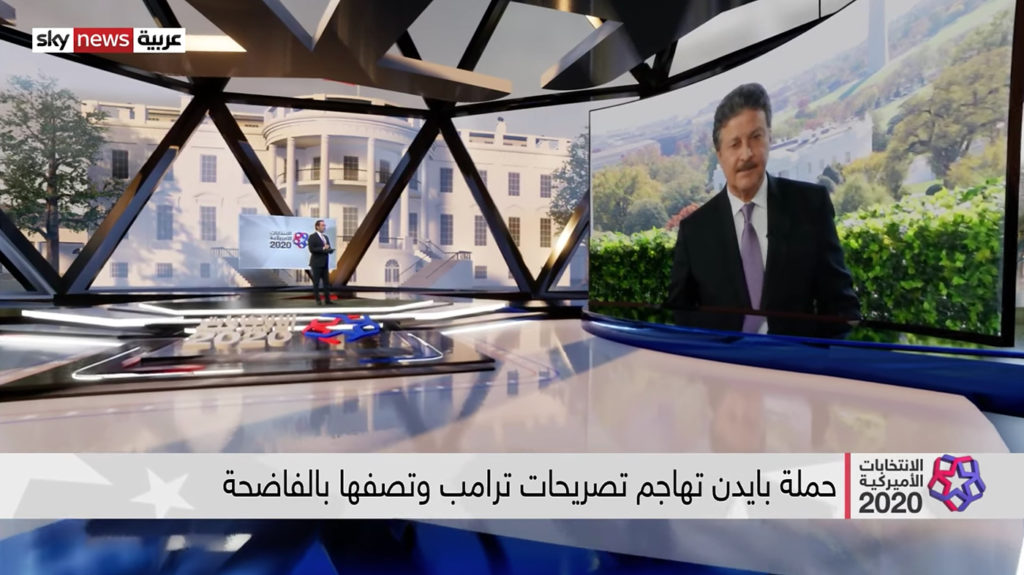

For interviews, a large monitor also appeared in the virtual world.
In the network’s physical studio, the network’s large LED video wall and floor were augmented with election branding.
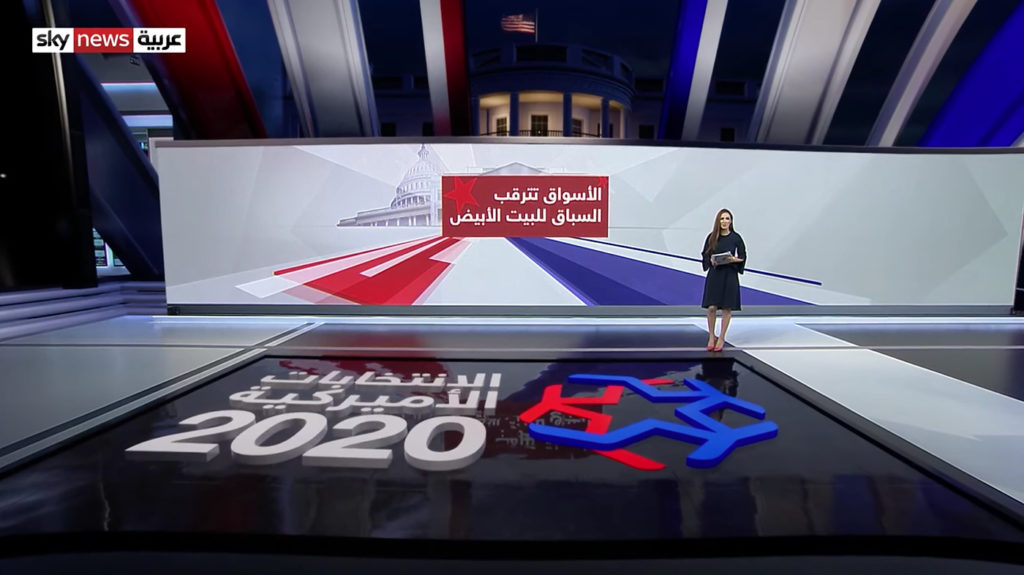

Subscribe to NewscastStudio for the latest news, project case studies and product announcements in broadcast technology, creative design and engineering delivered to your inbox.

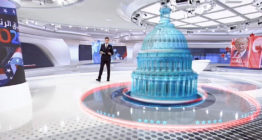
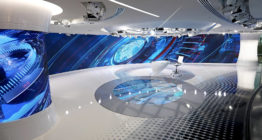

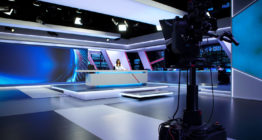

tags
2020 Election, Al Arabiya, Al Arabiya News Channel, Al Jazeera, Al Jazeera Arabic, Al Jazeera English, Al Jazeera Media Network, Astucemedia, Astucemedia Data Platform, Augmented Reality, Augmented Reality for Broadcast, Augmented Reality Sets, Dubai, Epic Games Unreal Engine, Fadi Radi, Immersive Augmented Reality, MBC Dubai, MBC Group, Movicom, Robycam, sky news arabia, Stype, Unreal Engine, virtual set extensions, Virtual Sets, Viz Pilot Edge, viz virtual studio, Vizrt, Vizrt Viz Engine, Vizrt Viz Pilot Edge, Zero Density, Zero Density Reality, العربية
categories
Augmented Reality, Virtual Production and Virtual Sets, Broadcast Equipment, Data Visualization, Elections, Featured, TV News Virtual Set Design, Virtual Sets